Years of observing, leading and consulting small teams made us realize that it’s not the lack of knowledge that makes effective teamwork so hard. It’s the hard questions themselves that are not being asked at the right time.
The obviousness of forming groups and acting as one sometimes makes it difficult to spot real challenges of building, maintaining and developing great teams.
We built Team Canvas as a reflection on our experience with teams and teamwork-centered companies. It is intended for advanced leaders and facilitators to help bring groups on the same page, and start building strong team culture, bottom up.
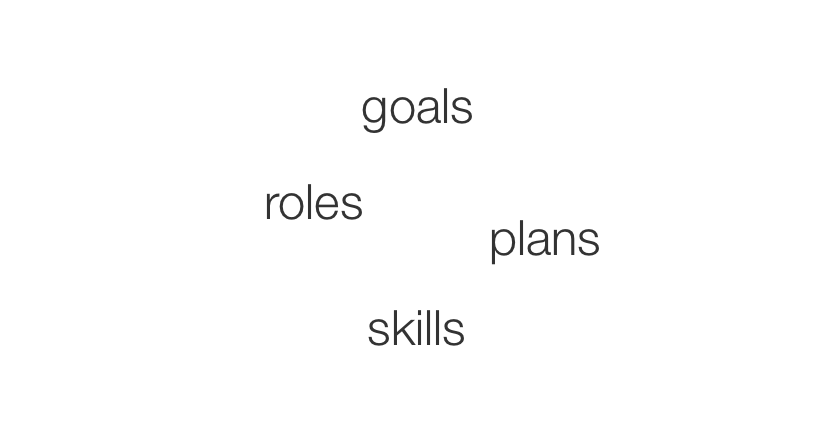
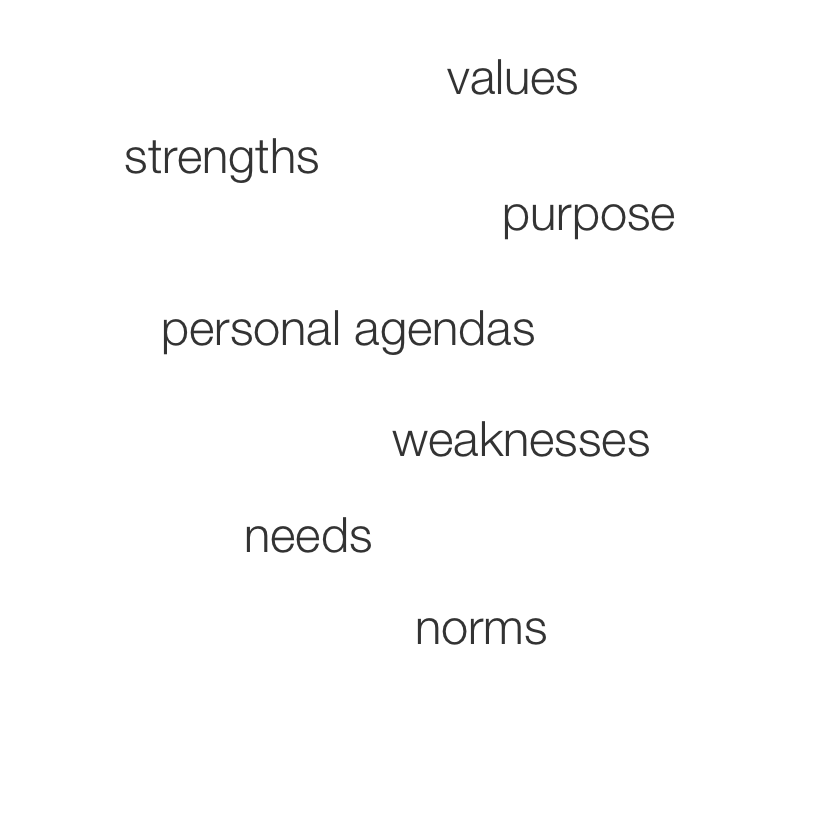
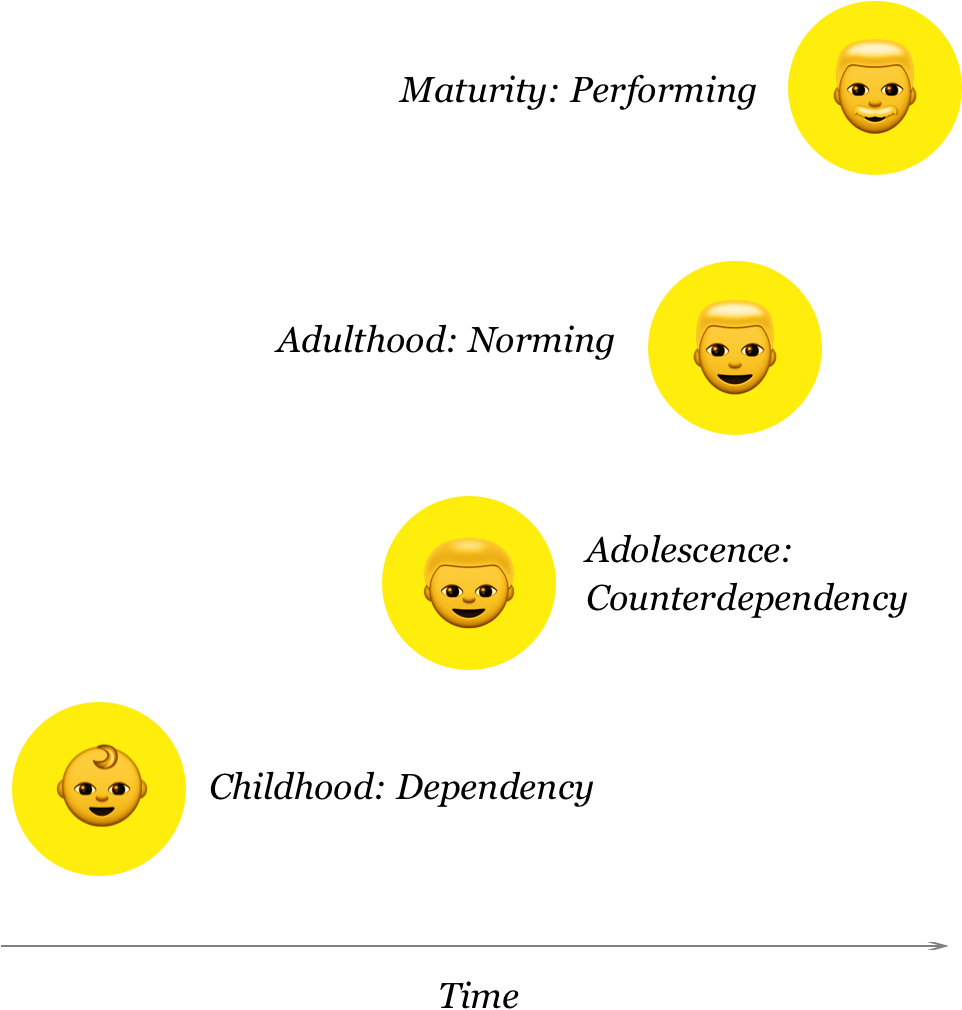
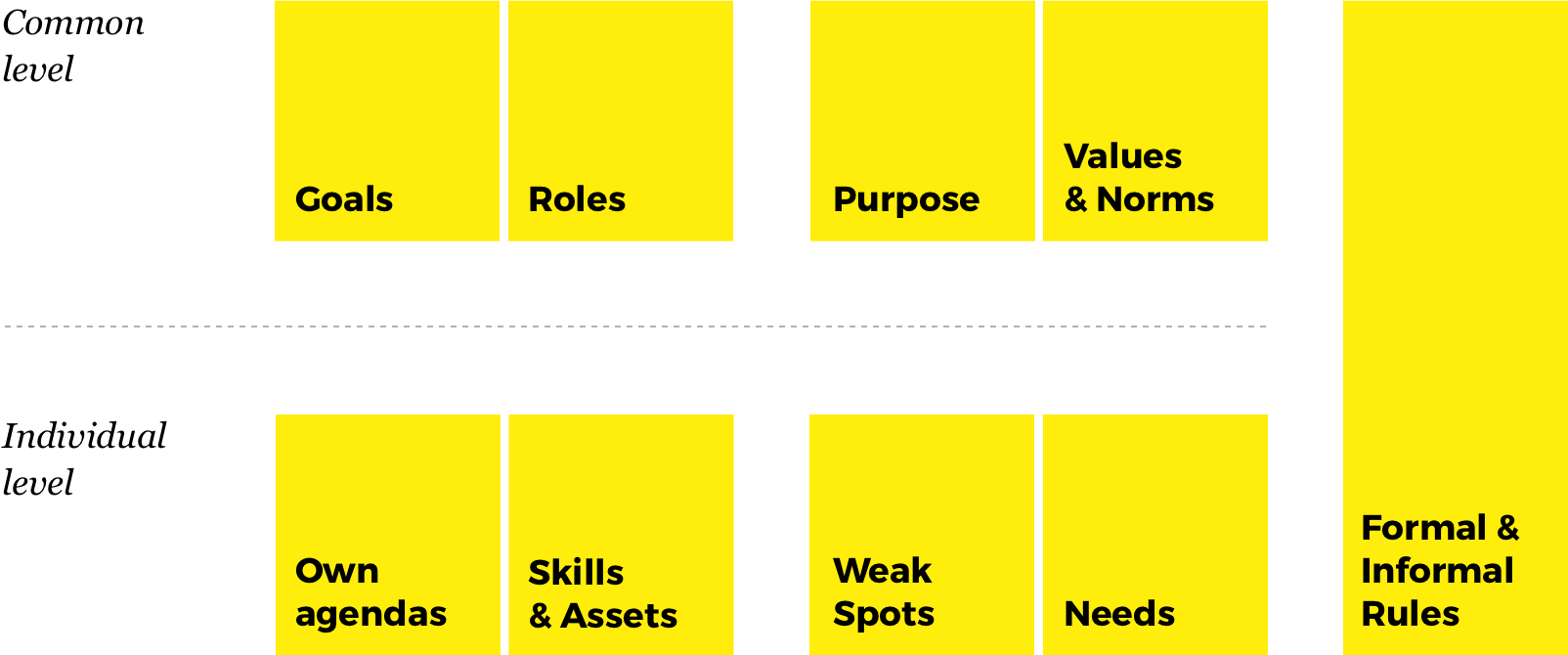
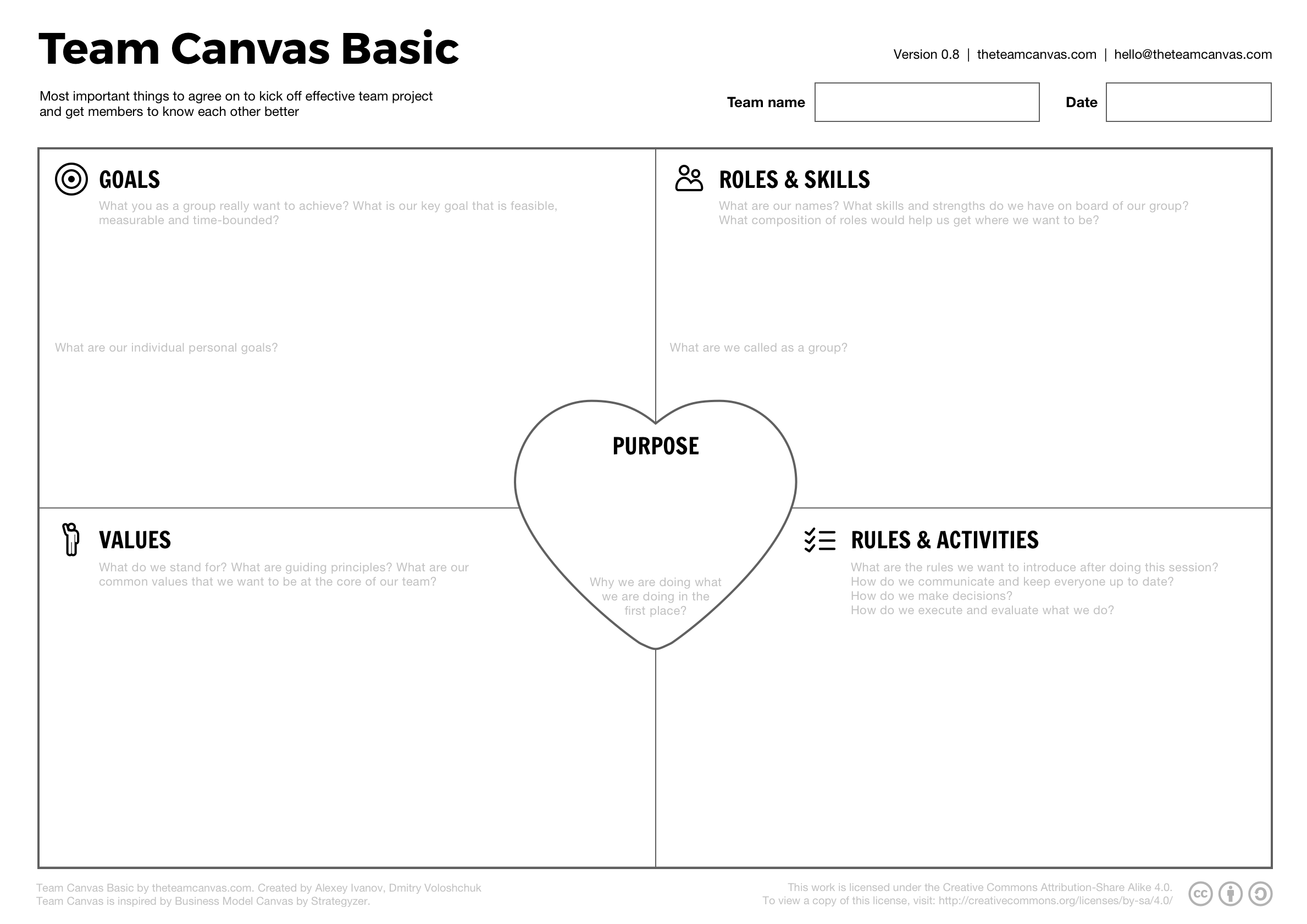
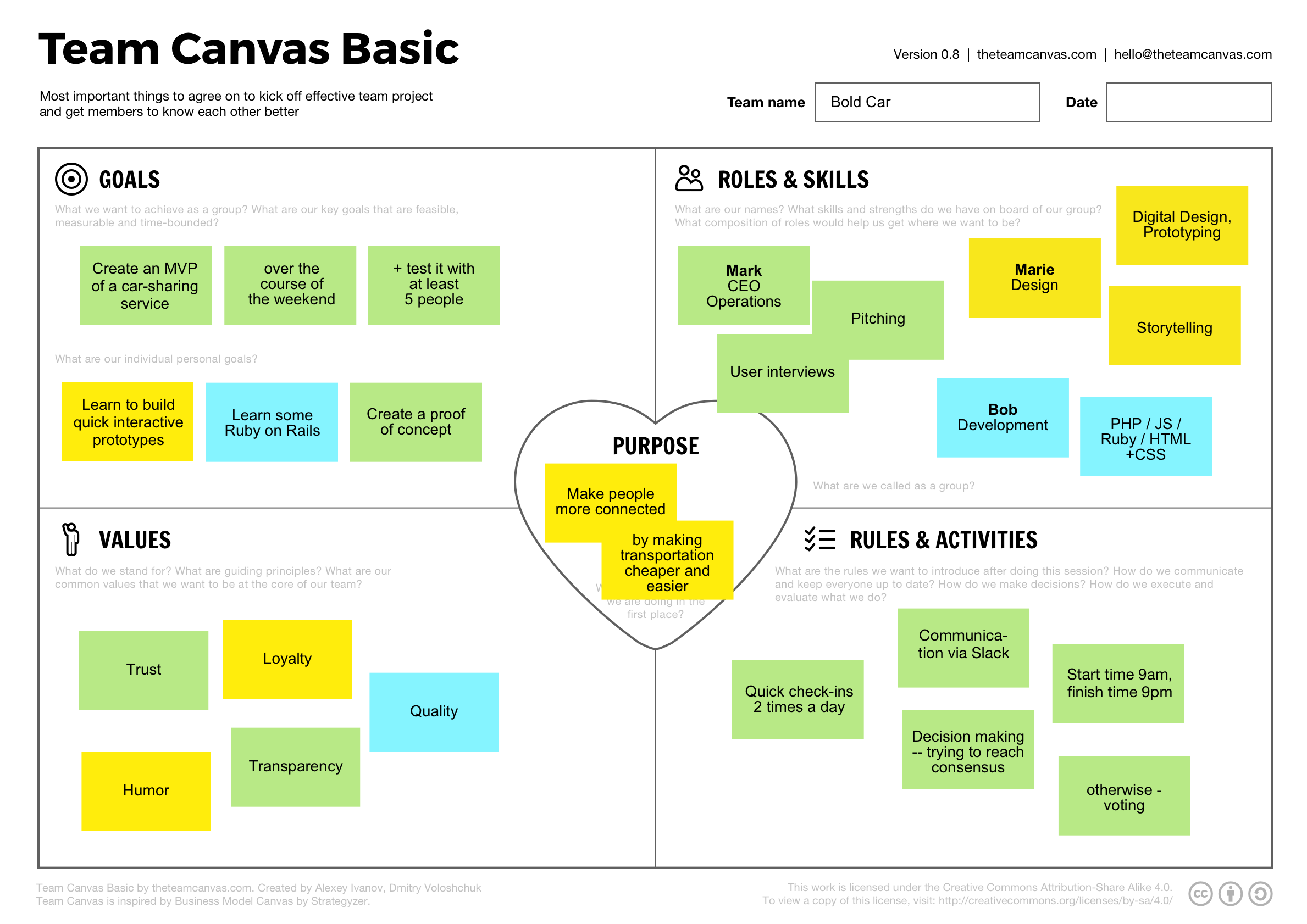
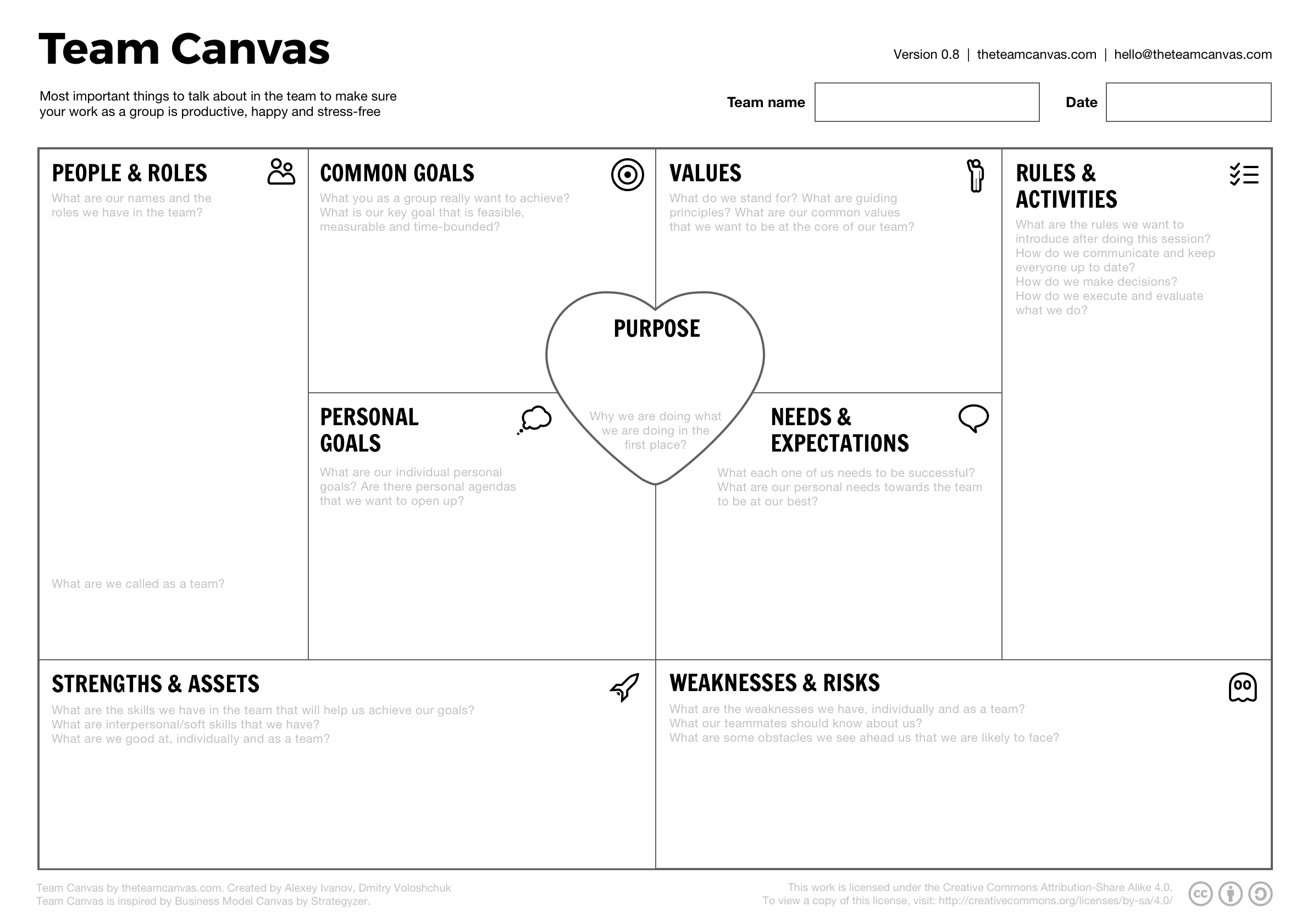
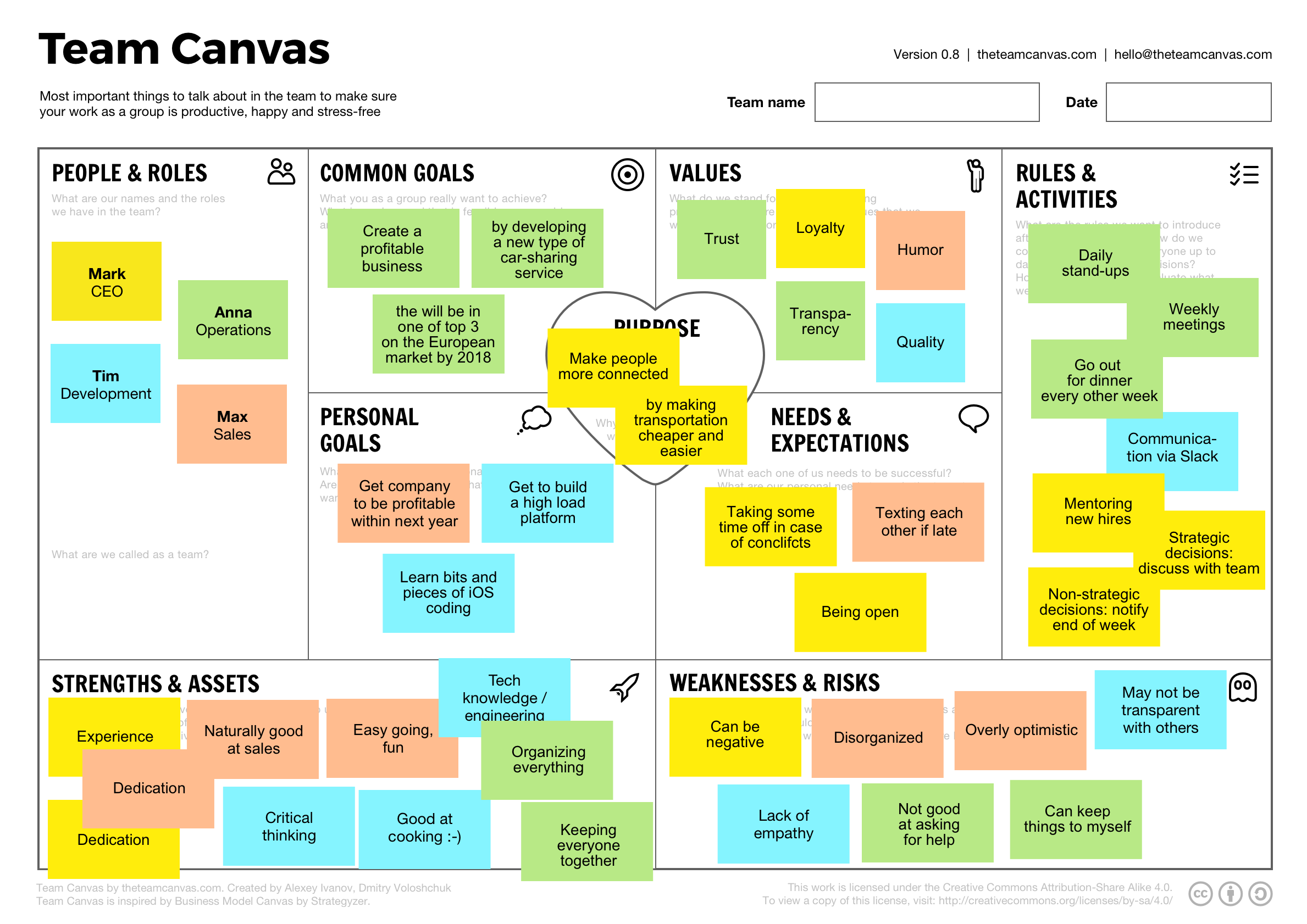
What are the goals for the whole team, as well as for each team member?
🕐 5 mins
Whata are the roles and corresponding skills that each member brings to the table?
🕐 5 mins
What is the team's purpose: the Why behind your goals?
🕐 5 mins